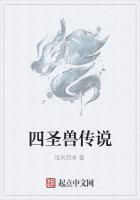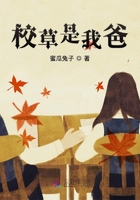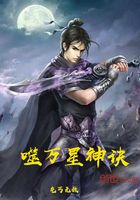And how evident it was that the children and the aged died because they had no milk, and they had no milk because there was no pasture land, and no land to grow corn or make hay on. It was quite evident that all the misery of the people or, at least by far the greater part of it, was caused by the fact that the land which should feed them was not in their hands, but in the hands of those who, profiting by their rights to the land, live by the work of these people. The land so much needed by men was tilled by these people, who were on the verge of starvation, so that the corn might be sold abroad and the owners of the land might buy themselves hats and canes, and carriages and bronzes, etc. He understood this as clearly as he understood that horses when they have eaten all the grass in the inclosure where they are kept will have to grow thin and starve unless they are put where they can get food off other land.
This was terrible, and must not go on. Means must be found to alter it, or at least not to take part in it. "And I will find them," he thought, as he walked up and down the path under the birch trees.
In scientific circles, Government institutions, and in the papers we talk about the causes of the poverty among the people and the means of ameliorating their condition; but we do not talk of the only sure means which would certainly lighten their condition, i.e., giving back to them the land they need so much.
Henry George's fundamental position recurred vividly to his mind and how he had once been carried away by it, and he was surprised that he could have forgotten it. The earth cannot be any one's property; it cannot be bought or sold any more than water, air, or sunshine. All have an equal right to the advantages it gives to men. And now he knew why he had felt ashamed to remember the transaction at Kousminski. He had been deceiving himself. He knew that no man could have a right to own land, yet he had accepted this right as his, and had given the peasants something which, in the depth of his heart, he knew he had no right to. Now he would not act in this way, and would alter the arrangement in Kousminski also. And he formed a project in his mind to let the land to the peasants, and to acknowledge the rent they paid for it to be their property, to be kept to pay the taxes and for communal uses. This was, of course, not the single-tax system, still it was as near an approach to it as could be had under existing circumstances. His chief consideration, however, was that in this way he would no longer profit by the possession of landed property.
When he returned to the house the foreman, with a specially pleasant smile, asked him if he would not have his dinner now, expressing the fear that the feast his wife was preparing, with the help of the girl with the earrings, might be overdone.
The table was covered with a coarse, unbleached cloth and an embroidered towel was laid on it in lieu of a napkin. A vieux-saxe soup tureen with a broken handle stood on the table, full of potato soup, the stock made of the fowl that had put out and drawn in his black leg, and was now cut, or rather chopped, in pieces, which were here and there covered with hairs. After the soup more of the same fowl with the hairs was served roasted, and then curd pasties, very greasy, and with a great deal of sugar. Little appetising as all this was, Nekhludoff hardly noticed what he was eating; he was occupied with the thought which had in a moment dispersed the sadness with which he had returned from the village.
The foreman's wife kept looking in at the door, whilst the frightened maid with the earrings brought in the dishes; and the foreman smiled more and more joyfully, priding himself on his wife's culinary skill. After dinner, Nekhludoff succeeded, with some trouble, in ****** the foreman sit down. In order to revise his own thoughts, and to express them to some one, he explained his project of letting the land to the peasants, and asked the foreman for his opinion. The foreman, smiling as if he had thought all this himself long ago, and was very pleased to hear it, did not really understand it at all. This was not because Nekhludoff did not express himself clearly, but because according to this project it turned out that Nekhludoff was giving up his own profit for the profit of others, and the thought that every one is only concerned about his own profit, to the harm of others, was so deeply rooted in the foreman's conceptions that he imagined he did not understand something when Nekhludoff said that all the income from the land must be placed to form the communal capital of the peasants.
"Oh, I see; then you, of course, will receive the percentages from that capital," said the foreman, brightening up.
"Dear me! no. Don't you see, I am giving up the land altogether."
"But then you will not get any income," said the foreman, smiling no longer.
"Yes, I am going to give it up."
The foreman sighed heavily, and then began smiling again. Now he understood. He understood that Nekhludoff was not quite normal, and at once began to consider how he himself could profit by Nekhludoff's project of giving up the land, and tried to see this project in such a way that he might reap some advantage from it.
But when he saw that this was impossible he grew sorrowful, and the project ceased to interest him, and he continued to smile only in order to please the master.
Seeing that the foreman did not understand him, Nekhludoff let him go and sat down by the window-sill, that was all cut about and inked over, and began to put his project down on paper.
The sun went down behind the limes, that were covered with fresh green, and the mosquitoes swarmed in, stinging Nekhludoff. Just as he finished his notes, he heard the lowing of cattle and the creaking of opening gates from the village, and the voices of the peasants gathering together for the meeting. He told the foreman not to call the peasants up to the office, as he meant to go into the village himself and meet the men where they would assemble.
Having hurriedly drank a cup of tea offered him by the foreman, Nekhludoff went to the village.















